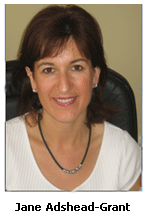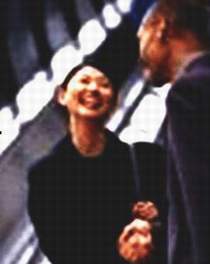 ReConnect Africa is a unique website and online magazine for the African professional in the Diaspora. Packed with
essential information about careers, business and jobs, ReConnect Africa keeps you connected to the best of Africa.
ReConnect Africa is a unique website and online magazine for the African professional in the Diaspora. Packed with
essential information about careers, business and jobs, ReConnect Africa keeps you connected to the best of Africa.


There has been a huge increase in coaching within the workplace, both internally where leaders are adopting more of a coaching style as part of their leadership toolkit and externally where organisations are purchasing external coaches.
 In the second of a 2-part article, Jane Adshead-Grant looks at how to choose a coach and offers a case study of how coaching helped to improve business performance.
In the second of a 2-part article, Jane Adshead-Grant looks at how to choose a coach and offers a case study of how coaching helped to improve business performance.
There are many coaches to choose from and much information is available on individual coaches and coaching organisations. So where do you start? Below are some considerations to think about:
 Rapport is essential when engaging a coach. Usually an initial consultation is set up to meet or have a conversation with a coach, providing the coachee with an opportunity to feel if they can work with this person and establish and initial rapport.
Rapport is essential when engaging a coach. Usually an initial consultation is set up to meet or have a conversation with a coach, providing the coachee with an opportunity to feel if they can work with this person and establish and initial rapport.
Location is usually not so important. While some coaches only have face to face meetings, often telephone coaching can be as productive, if not more so. Sometimes a combination of both face and face and telephone coaching works well.
The background of the coach in relation to the coachee is not so important either. It is not necessary for the coach to know much, if anything, about the industry or specific role of their coachee. In fact, often the most productive coaching is when the coachee knows nothing.
Sue is Head of Collective Funds for a large Investment Services Organisation. We begun our coaching relationship 10 months ago and have just completed the programme.
One of Sue’s coaching objectives was to discover new ways that she could make a difference in the organisation. The success indicators that she would notice as she progressed towards meeting this objective were that she would be more open to taking on new initiatives within the organisation and would generate more ideas for improvement in processes leading to increased business efficiency.
One of the issues that Sue had highlighted for herself was her lack of confidence in speaking up in large meetings. Sue felt that she often had things to say that would contribute to a large discussion group, but felt inhibited. We worked together in establishing what some of her underlying beliefs were about speaking out publicly.
We also looked at what the benefits would be for her if she were to speak out more publicly and they included:
We looked at some of the costs of her not doing speaking out in such meetings and Sue concluded that she would get left behind and leave her feeling uncomfortable that she did not offer her views and thoughts when being invited to do so.
I encouraged Sue to think about and visualise what a ‘good contribution’ at one of these large meetings would look like and Sue quickly identified that information would be relevant, clear and succinct and presented in a professional manner. So we began to look at what options were available to her to reduce her fear of speaking out publicly in such large meetings and Sue came up with the following:
We looked at where this problem of conquering fear had shown up before and highlighted a time when Sue began driving again after 10 years of not driving. She was very anxious about getting into the car and her fear was that she might have an accident. The parallel drawn here is that the same behaviour has manifested itself; the fear of something that might happen and yet has never happened. We looked at what strategy Sue had adopted to overcome this fear previously and she concluded the following:
We looked at what Sue might take from this strategy to serve her now and she considered the following:
At the end of our coaching relationship, Sue has not only began to contribute more widely in large meetings by offering her ideas and improvements to the way things are done, she has also taken on a mentor role within the organization where she herself is using some of her coaching skills and really making a difference by supporting someone else and their development outside of her department.
With experience within International Law and Financial Services, Jane Adshead-Grant of Ashvale Consultancy Limited is a member of the Association for Coaching and a qualified Neuro Linguistic Programming (NLP) Coach and licensed NLP Master Practitioner. Jane is accredited with the British Psychological Society for Level A & B psychometric assessment and is a member of the UK Chartered Institute of Personnel and Development.
